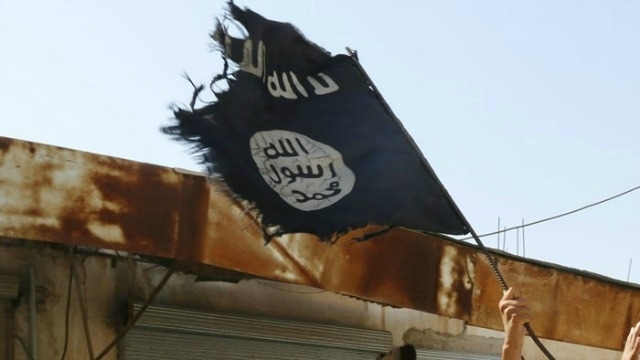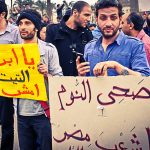by Emile Nakhleh
The Islamic State (ISIS or IS) has claimed that the French-Tunisian truck driver who plowed into crowds celebrating Bastille Day in Nice killing nearly 100 people and injuring over 200 as one of their “soldiers.” The West and the Arab Muslim states must now take a hard look at IS and the radical violent ideology that drives it. Muslim clerics in Arab lands and in the West, as well as Arab and Muslim regimes, have failed to generate a popular backlash against these horrible crimes across the Middle East, Europe, and the United States.
Violent radical ideology and regime policies drive “jihadist” killers and therefore demand a strategic focus on three key approaches: delegitimize the religious narrative that killers use to justify their actions in the name of their religion; identify credible “moderate” voices within Islam and empower them to speak up against the violent “hijackers” of their faith; and encourage friendly Arab and Muslim regimes to condemn the radical Sunni ideology in their societies and adopt domestic policies that would include their peoples in governance.
Muslim world engagement abroad and at home became the buzz phrase in Washington and other Western capitals. Government analysts, academics, journalists, and “terrorism experts” wrote many reports, articles, and books on the subject. The central questions in most of those reports focused on whom to engage, what to engage, why to engage, and with what to engage.
“Moderate” Voices: Barely Audible
Bush administration officials identified hundreds of so-called moderate religious scholars within Islam from Egypt to Indonesia and Malaysia and from the Arab heartland to Europe and the United States. They were considered authentic mainstream voices, legitimate interlocutors, and credible debaters within Islam. The view within our government at the time was that only respected Muslim scholars and theologians should get involved in internal Muslim debates about the future direction of Islam and its relations with the non-Muslim world.
This line of reasoning carried weight, but unfortunately “moderate” and “reformist” voices had only minimal impact. Most high school graduates and high school drop-outs in Muslim countries and Muslim ghettoes in Europe, who made up most of al-Qaeda’s foot soldiers, were not swayed by the “reformist” treatises against the religiously questionable fatwas of Osama bin Ladin. Radicalized youth, who under OBL’s influence, had already made up their minds to do “jihad.” They neither understood nor were interested in the sophisticated argumentations dished out by scholars, often in foreign languages. By the time some of these statements were translated into the vernacular, many of the “jihadist” youth had already been converted to OBL’s war against Muslim and non-Muslim “infidels,” “apostates,” and “unbelievers” or “kuffar.”
Muslim World Engagement: A Generational Undertaking
A couple of years after 9/11, the Bush administration began to focus on the need to engage mainstream Muslim communities overseas and at home in an effort to delegitimize the radical narrative. Having participated in those discussions, I observed that many senior decision makers within the administration supported this approach. In fact, I wrote a book after I left the government on the subject (A Necessary Engagement: Reinventing America’s Relations with the Muslim World). But, unfortunately, the effort didn’t work.
Two reasons contributed to the failure to win the “hearts and minds” of mainstream Muslims, a policy reason and a governmental one. On the policy side, the invasion of Iraq in March 2003 undermined most of the administration’s claims that the United States was not engaged in a war against Islam. The Muslim world, and many others including those in the Bush administration itself, rejected the justification of the invasion on the flimsy “evidence” that Saddam was somehow involved in 9/11 or that he had stockpiles of WMD.
On the government side, Muslim world engagement was essentially given to USAID. Although a consensus emerged on the need to build an all-government capacity, not much was done on the implementation side. The envisioned capacity meant that the Department of Justice, for example, would be involved in issues relating to the rule of law in other societies. The Department of Energy’s national labs would contribute to such areas as energy and fresh water security. So was the case with the Department of Education when it came to educational reform. Other departments would respond to tasks pertaining to their areas of expertise.
Due to limited funding and staffing, USAID was overwhelmed as it endeavored to implement its traditional projects in agriculture, health, and housing projects across the Muslim world. Despite good intentions and sophisticated evaluation metrics, generational engagement projects were difficult to implement and onerous to track and evaluate. They rarely enjoyed support across administrations.
Countering Radicalization at Home
At the risk of stating the obvious, successful law enforcement partnering with Muslim communities across the United States must be based on mutual respect on both sides. Spotting and identifying potential radicalized young men and women before they become so-called jihadists presumes that the Muslim community believes it’s part of this country and that any potential damage to their particular city, neighborhood, or the country at large is harmful to them as American citizens.
Since 9/11 we have also learned that respecting the privacy and individual rights of communities of faith is essential for their lasting and productive cooperation with law enforcement. “Islamophobia” and statements by certain politicians and would-be national leaders about “keeping Muslims out” or “tracking Muslim neighborhoods” or “testing their commitment to Sharia” are divisive and undercut the national effort to counter violent extremism. Law enforcement needs the family or the community where a particular youth lives to inform about that person’s change in social behavior and habits before he commits violence.
Lessons from the past 15 years teach us that long-term engagement, if done smartly, selectively, and consistently, will help erode radicalism and discredit the recruiters of suicide bombers and the preachers of hate and terrorism, both overseas and here at home.
Fighting IS and Its Ideology
It’s clear by now that at least two sets of factors drive the Islamic State (ISIS or IS) and its resiliency: radical Sunni ideology and domestic policies in many Arab Muslim societies. These policies include repression, corruption, poverty, unemployment, inadequate education, regime driven sectarianism, and exclusion of groups, minorities, and even majority which regimes view as seditious.
As Western and Muslim countries are fighting to dry up the IS swamp, they should implement at least three specific policies:
Islamic State—Coordinate a serious Middle Eastern-Western military campaign to contain IS resources and territory, which underpin its resiliency. Some journalists have correctly maintained that once IS is deprived of most of its financial resources and loses much of the territory under its control, the Baghdadi Caliphate would be reduced to no more than a virtual entity or a Blog. As IS comes under more pressure in Syria and Iraq, it will lash out against neighboring states such as Jordan, Egypt, and Saudi Arabia and will try to inspire operations in Europe and the United States.
The concerted military effort by the regional states and the West should also make it clear to the Bashar al-Assad regime in Syria, through military action if necessary, that fighting IS does not give him a new lease on life. Secretary of State John Kerry’s noble intentions notwithstanding, Assad and Russian President Vladimir Putin are not interested in negotiating the Damascus regime out of existence. The ongoing talks between Washington and Moscow about yet another peace arrangement in Syria is an exercise in futility.
Radical ideology—The time is ripe for Arab and Islamic states, including Saudi Arabia, and the West to face up to the impending disaster if Sunni radical ideology continues to run amok. The Al Saud regime has never truly confronted its own purveyors of hate in the name of Islam. The Saudis cannot continue to teach in their textbooks the same intolerant, narrow-minded, interpretations of Islam and expect their youth and other Muslims educated in Saudi Islamic colleges and universities to be tolerant toward other sects within Islam, including the Shia, and non-Muslims.
The extremist Wahhabi-Salafi strain of Islamic ideology, which permeates the religious culture of Saudi Arabia, must be confronted. This doesn’t mean that other countries intend to tell Saudi Arabia how to teach their religion. But once terrorists and so-called jihadists use such teachings to justify their dastardly deeds, the world and the Saudis must take notice of what their textbooks inculcate in their youth.
The recently released “28 pages” about 9/11 and specifically the two hijackers Nawaf al-Hazmi and Khalid al-Mihdhar, show that certain Saudi embassy and consulate officials in the United States, especially Omar al-Bayoumi and Shaykh al-Thumairy, had contacts with the two hijackers and even supported them financially. Although no “smoking gun” has been found to tie the Saudi government to the hijackers, Saudi officials were cognizant and perhaps tolerant of the radical religious ideology that drove the hijackers and their al-Qaeda masters.
Arab and Muslim leaders and mainstream Sunni theologians must follow every terrorist criminal act with clear and unequivocal statements condemning the act and the radical ideology behind it. They should use their print and electronic media outlets, including social media, to change the way people think about terrorism. Such statements should be made in different languages and should blanket the public space across the Islamic world and in the West. The Saudi regime must revise the curriculum taught in the Islamic schools they support in other countries for the purpose of proselytization.
Domestic repression—If Arab Muslim regimes expect their societies to be peaceful, they must provide their citizens with political and economic outlets to express themselves and their creativity. As governments in many of these countries can no longer be the main employer, they must support private sector and individually driven entrepreneurial initiatives for job creation. These regimes must also realize that education for the 21st century, and individual empowerment through freedom of thought and technology are critical for the future of the region. Economic, political, educational, and entrepreneurial reform is the only way to drain the swamp of violent extremism.
Ruling through repression and fear might work in the short run. In the long run it is a recipe for continued instability, bloody violence, and widespread terrorism.






About 8 years ago an Algerian wrote a novel called The German Mujahdeen. It was about 2 sons of an Algerian couple who discovered their fathers past. It is considered the first Arab novel to acknowledge the Holocaust. My point is that as the novel puts it Algerians and/or Tunesians are segragated in ghettos in France and it is no wonder they become radical